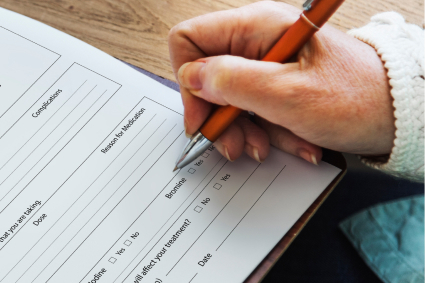By We Level Up Lawrenceville NJ | Author Alex Evans, PharmD, MBA | Editorial Policy | Research Policy
Every 23 minutes, someone in the United States dies from a cocaine-related overdose. Behind this stark statistic are real people—professionals who started using recreationally at parties, parents who turned to cocaine to cope with life’s pressures, and young adults who experimented without understanding the powerful grip this substance would soon have on their lives.
Cocaine addiction doesn’t discriminate. It unravels relationships, derails promising careers, drains bank accounts, and deteriorates physical and mental health. What begins as occasional use can quickly escalate into a devastating cycle that feels impossible to escape.
But here’s the truth that matters most: recovery is possible. At We Level Up NJ, we’ve witnessed countless individuals break free from cocaine’s hold and rebuild lives filled with purpose and joy.
If you or someone you love is struggling, know that professional treatment isn’t just an option—it’s a lifeline that can make all the difference.
What is Cocaine Addiction?
Cocaine addiction is more than just frequent drug use—it’s a chronic brain disorder characterized by compulsive drug-seeking and use despite harmful consequences.
When cocaine enters your system, it floods your brain with dopamine—a neurotransmitter associated with pleasure and reward—at levels far beyond what natural experiences can produce. It also has effects on other neurotransmitters, like serotonin and norepinephrine.
Your brain quickly adapts, becoming less sensitive to both the drug and natural rewards. This creates a devastating cycle: needing more cocaine to feel normal, while activities that once brought joy now feel empty without the drug.
Cocaine comes in multiple forms, each with its own risks:
- Powder cocaine (hydrochloride salt) is typically snorted through the nose or dissolved and injected into veins
- Crack cocaine is powder cocaine processed with baking soda into rock-like crystals that are smoked, delivering a more immediate, intense high

Skip to:
Learn more:
- Cocaine Overdose
- Cocaine Side Effects
- What is Cocaine Made Out of?
- Signs of Cocaine Use, Effects, Withdrawal Symptoms of Cocaine Addiction
- How Long Does Cocaine Stay in Your System?
- Is Cocaine a Stimulant or Depressant?
- How Long Does Cocaine Stay In Your Blood?
- Coke Nose – Nose Damage from Snorting Cocaine
According to the National Survey on Drug Use and Health, approximately 5.5 million Americans aged 12 or older reported using cocaine in 2019, and around 20% of those users will meet criteria for cocaine use disorder. Here in New Jersey, there were close to 900 cocaine-related deaths in the past year alone.
Without treatment, cocaine addiction typically progresses in severity. The brain changes become more entrenched, health problems multiply, and the risk of overdose—particularly with today’s cocaine supply often contaminated with fentanyl—grows substantially.
Signs and Symptoms of Cocaine Addiction
Recognizing cocaine addiction—whether in yourself or someone you care about—can literally save a life. The signs often appear gradually, making them easy to miss or dismiss until the problem has significantly progressed.
Physical signs of cocaine depend on the level of toxicity and may include:
- Dilated pupils that don’t respond normally to light changes
- Frequent nosebleeds, runny nose, or damaged nasal septum (from snorting)
- Significant weight loss and decreased appetite
- Insomnia or disturbed sleep patterns
- Increased heart rate and blood pressure
- Burns on fingers or lips (from smoking crack cocaine)
- Track marks or injection sites (if injecting)
As cocaine takes priority, behavior changes become apparent:
- Increased secrecy and lying about whereabouts
- Unexplained financial problems or frequently asking to borrow money
- Neglecting responsibilities at work, school, or home
- Withdrawing from family and friends who don’t use
- Restlessness, agitation, or inability to sit still
The mental and emotional impact of cocaine addiction can be profound:
- Cycling between extreme euphoria and deep depression
- Increasing anxiety or panic attacks
- Paranoia or suspicious thoughts
- Irritability, hostility, or sudden mood swings
- Intense cravings that dominate thoughts
Early recognition opens the door to earlier intervention, which significantly improves recovery outcomes.
If you notice these signs, approaching the situation with compassion rather than judgment creates the best chance for someone to accept help. Many people using cocaine are already battling shame and fear—meeting them with understanding can make all the difference in their willingness to seek treatment.

Get Your Life Back
Find Hope & Recovery. Get Safe Comfortable Detox, Addiction Rehab & Mental Health Dual Diagnosis High-Quality Care at the We Level Up Treatment Centers Network.
Hotline (877) 378-4154Cocaine Addiction Treatment Options
Recovery from cocaine addiction isn’t one-size-fits-all. Effective treatment addresses the physical, psychological, and social aspects of addiction through a personalized approach that evolves as you progress.
At We Level Up NJ, we’ve developed comprehensive care that adapts to your unique needs—because your recovery journey is as individual as you are.
Medical Detoxification: The Essential First Step
Before therapeutic work can begin, your body needs to safely clear cocaine from your system.
Our medical detox program provides 24/7 supervision from experienced physicians and nurses who monitor vital signs, manage symptoms, and ensure your comfort and safety.
While medications specifically approved for cocaine withdrawal don’t currently exist, our medical team can provide supportive medications to manage specific symptoms like anxiety or sleep disturbances, when appropriate.
Inpatient Rehabilitation: Immersive Healing
For many people with cocaine addiction—especially those with severe addiction, previous relapse experiences, or unstable home environments—inpatient rehab provides the structured environment needed for early recovery.
At We Level Up NJ, our residential program offers:
- A distraction-free environment removed from triggers and access to substances
- Round-the-clock care and monitoring by addiction specialists
- Structured daily schedules that restore healthy routines
- Intensive therapy sessions (both individual and group)
- Nutritional support to heal the physical damage of addiction
- Peer community that understands the challenges of recovery

Outpatient Programs: Flexibility With Support
For those with strong support systems, less severe addiction, or who have completed inpatient care, an outpatient program provides flexibility to maintain work, school, or family commitments while receiving treatment.
Our outpatient programs include evidence-based therapy, group counseling, and regular check-ins with your treatment team, allowing you to immediately apply recovery skills in your daily life with ongoing professional guidance.
Evidence-Based Behavioral Therapies
Cocaine addiction treatment relies heavily on behavioral therapies proven effective through rigorous research. These approaches help you understand your addiction, develop coping skills, and create lasting change:
Cognitive-Behavioral Therapy (CBT) helps you identify and change the thought patterns that lead to cocaine use. You’ll learn to recognize triggers, challenge distorted thinking, and develop healthy coping strategies for cravings and stress.
Motivational Interviewing (MI) helps resolve ambivalence about change through collaborative conversation. Your therapist helps you find your own internal motivation for recovery, which leads to more sustainable results than external pressure.
Dialectical Behavior Therapy (DBT) teaches emotional regulation, distress tolerance, mindfulness, and interpersonal effectiveness—skills often underdeveloped in those struggling with addiction.
Dual Diagnosis Treatment: Healing the Whole Person
Many of those with cocaine addiction also struggle with co-occurring mental health conditions like depression, anxiety, PTSD, or ADHD. These conditions can fuel cocaine use as a form of self-medication, and cocaine use can worsen mental health symptoms—creating a destructive cycle.
Our integrated dual diagnosis approach treats both conditions simultaneously rather than as separate issues. This includes specialized therapy addressing both addiction and mental health and personalized treatment plans addressing all aspects of wellness.
Managing Cocaine Withdrawal and Cravings
Cocaine cravings can be particularly intense and persistent, often continuing long after detox is complete.
We provide comprehensive strategies to help you manage these challenges, including helping you identify personal triggers, manage cravings, and providing you with tools for stress management and relaxation.
While no FDA-approved medications specifically treat cocaine addiction, research continues in this area, and our physicians stay current with emerging approaches that might benefit our clients.
Comfortable Facilities & Amenities
High-Quality Addiction & Mental Health Rehabilitation Treatment
Rehab Centers TourRenowned Addiction Centers. Serene Private Facilities. Inpatient rehab programs vary.
Addiction Helpline (877) 378-4154Proven recovery success experience, backed by a Team w/ History of:
15+
Years of Unified Experience
100s
5-Star Reviews Across Our Centers
10K
Recovery Success Stories Across Our Network
- Low Patient to Therapist Ratio
- Onsite Medical Detox Center
- Comprehensive Dual-Diagnosis Treatment
- Complimentary Family & Alumni Programs
- Coaching, Recovery & Personal Development Events
Why Choose We Level Up NJ for Cocaine Addiction Treatment
When it comes to overcoming cocaine addiction, where you receive treatment matters tremendously. The right environment, expertise, and approach can make the difference between lasting recovery and continued struggle. Here’s why so many New Jersey residents and families trust We Level Up NJ with their recovery journey.
Specialized Expertise in Cocaine Addiction
Our clinical team includes board-certified addiction psychiatrists, licensed therapists with specialized training in substance use disorders, and certified addiction counselors.
This combination of professional expertise and lived understanding creates a unique treatment environment where you’re truly understood.
Truly Individualized Treatment Planning
We recognize that your situation is unique—your history, your triggers, your strengths, and your challenges.
Rather than funneling everyone through identical programs, we develop treatment plans based on comprehensive assessments that consider your cocaine use history and patterns, previous treatment experiences (what worked and what didn’t), co-occurring mental health conditions, and other factors that can affect treatment.
Comfortable, Healing Environment
Located in the peaceful suburban setting of Lawrenceville, New Jersey, our facility provides the ideal environment for healing—close enough to major metropolitan areas for convenience but removed from the triggers and stress of daily life.
Our center features private and semi-private rooms with modern amenities and comfortable therapy and group spaces.
We believe that physical comfort supports emotional and psychological healing, creating space for the difficult but rewarding work of recovery.
Comprehensive Continuum of Care
Recovery doesn’t end when you complete inpatient treatment. Our full continuum of care means you can transition seamlessly between levels of treatment as your needs change.
This continuity prevents the gaps where relapse often occurs and provides ongoing support as you gradually return to independent living.
World-class, Accredited, 5-Star Reviewed, Effective Addiction & Mental Health Programs. Complete Behavioral Health Inpatient Rehab, Detox plus Co-occuring Disorders Therapy.
CALL (877) 378-4154End the Addiction Pain. End the Emotional Rollercoaster. Get Your Life Back. Start Drug, Alcohol & Dual Diagnosis Mental Health Treatment Now. Get Free No-obligation Guidance by Substance Abuse Specialists Who Understand Addiction & Mental Health Recovery & Know How to Help.
The Recovery Process
Recovery from cocaine addiction is a journey with distinct phases, each building on the previous one. Understanding this progression can help set realistic expectations and prepare you for the road ahead.
While everyone’s path is unique, here’s what you can generally expect when beginning treatment at We Level Up NJ.
The Stages of Treatment: Building Your Recovery Foundation
Assessment and Personalized Planning
Your recovery journey begins with a comprehensive evaluation by our multidisciplinary team. This includes a full medical exam and history, personal history, evaluation of substance use patterns, and a discussion of treatment goals.
From these assessments, we develop your personalized treatment plan—your roadmap to recovery that evolves as you progress.

Medical Detoxification
During detox, our priority is your comfort and safety as your body clears cocaine from your system. You’ll receive medical monitoring, symptom management, nutritional support, and counseling to support you through your journey.
As your physical symptoms subside, your energy shifts toward psychological healing.
Active Treatment
This core phase focuses on addressing the roots of addiction and building recovery skills. You’ll receive individual and group therapy, ongoing support for co-occurring disorders, wellness activities, and family involvement where appropriate.
Transition Planning
As you prepare to leave the structured environment of residential treatment, we help you build a sustainable plan for continued recovery. This includes identifying potential triggers in your home environment, developing a structured daily routine, and connecting with community support resources. We’ll also work with you to create an emergency relapse prevention plan.
Continued Care
Recovery extends well beyond your time in residential treatment. Many clients transition to weekly or monthly therapy sessions, support groups, and our alumni offerings for ongoing support.
Above all, we want you to know that recovery isn’t a straight line—it’s a process with challenges and triumphs. Setbacks aren’t failures; they’re opportunities to strengthen your recovery muscles.
With the right support system and the tools gained in treatment, cocaine addiction can become part of your past, not your future.
Get Help. Get Better. Get Your Life Back.
Searching for Accredited Drug & Alcohol Rehab Centers Near You? Or Mental Health Support?
Even if you have failed previously, relapsed, or are in a difficult crisis, we stand ready to support you. Our trusted behavioral health specialists will not give up on you. Call us when you feel ready or want someone to speak to about therapy alternatives to change your life. Even if we cannot assist you, we will lead you wherever you can get support. There is no obligation. Call our hotline today.
FREE Addiction Hotline – Call 24/7Starting Your Recovery Journey: Simple Steps Forward
Taking the first step toward treatment can feel overwhelming, but we’ve designed our admissions process to be straightforward and supportive.
Here’s exactly what to expect when you reach out to We Level Up NJ for cocaine addiction treatment.
Your journey begins with a simple phone call to our admissions team at (877) 378-4154 or by filling out our secure online form.
During this first conversation we’ll listen to your situation with compassion, answer questions you may have, and discuss insurance and payment options.
Many clients tell us that just making this call provides immediate relief—it’s the moment they begin taking control of their future again.
Insurance Verification and Financial Planning
We accept most major insurance plans and will work directly with your provider to:
- Verify your coverage for addiction treatment
- Determine any out-of-pocket expenses
- Explain all costs transparently
- Discuss payment plans if needed
Don’t let financial concerns prevent you from seeking help—our admissions counselors can discuss options for those without insurance coverage as well.
Your Journey to Recovery Starts Now
Your life doesn’t have to be defined by cocaine addiction. Right now—regardless of how long you’ve struggled or how many times you may have tried before—a different future is possible.
The hardest step is the first one. Call us today at (877) 378-4154 to chat confidentially with an admissions counselor who understands what you’re going through. We’re ready to answer your questions and guide you toward healing.
Don’t wait for “rock bottom” or the “perfect time.” Your journey toward recovery can begin right now, with one call.
Frequently Asked Questions
Do you have to pay for cocaine addiction rehab in NJ?
The cost of cocaine addiction rehab in New Jersey varies depending on factors like treatment type, duration, and insurance coverage. At We Level Up NJ, we accept most insurance plans, which can significantly reduce out-of-pocket costs. We also offer financial assistance options and personalized payment plans to ensure that treatment remains accessible. Contact us for a free consultation to verify your insurance and explore affordable rehab options.
How long does cocaine addiction rehab last in New Jersey?
The duration of cocaine addiction rehab in New Jersey depends on individual needs. At We Level Up NJ, treatment plans are customized, with options for detox, inpatient rehab, and long-term aftercare. Short-term programs focus on stabilization and therapy, while longer programs provide deeper recovery support. Extended care, including outpatient treatment and relapse prevention, may be recommended for lasting recovery.
Where in New Jersey can you find cocaine addiction rehab?
We Level Up NJ provides specialized cocaine addiction rehab in New Jersey, offering detox, inpatient treatment, and holistic therapy. Located in Lawrenceville, NJ, our facility provides a supportive environment for recovery. Our expert team offers personalized care, evidence-based treatments, and mental health support for lasting sobriety. Contact We Level Up NJ today to start your recovery journey.
Experience Transformative Recovery at the We Level Up Treatment Center.
See our authentic success stories. Get inspired. Get the help you deserve.



Start a New Life
Begin with a free call to an addiction & behavioral health treatment advisor. Learn more about our dual-diagnosis programs. The We Level Up treatment center network delivers various recovery programs at each treatment facility. Call to learn more.
- Personalized Care
- Caring Accountable Staff
- Comfortable Amenities
- Licensed & Accredited
- Renowned w/ 5-Star Reviews





